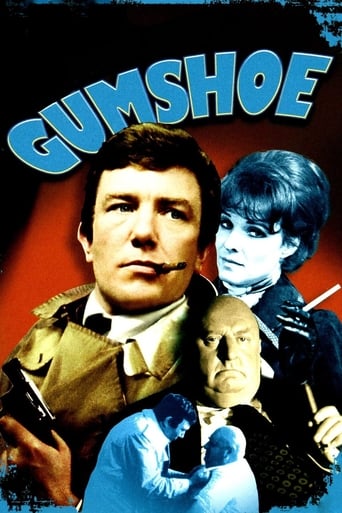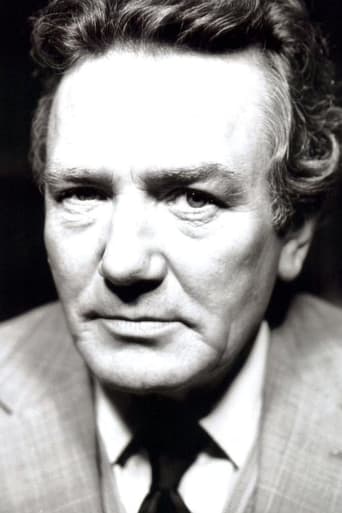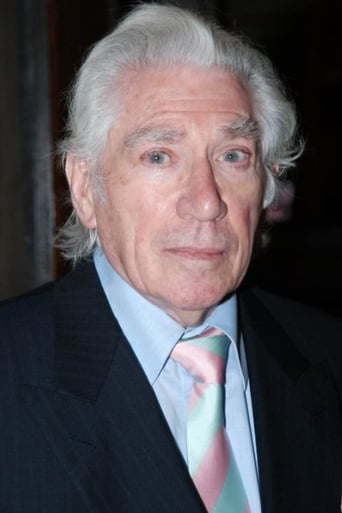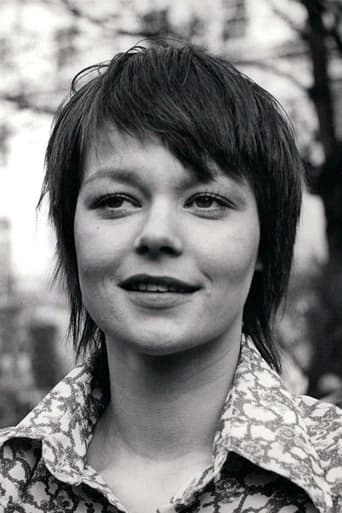CheerupSilver
Very Cool!!!
Dorathen
Better Late Then Never
Asad Almond
A clunky actioner with a handful of cool moments.
Paynbob
It’s fine. It's literally the definition of a fine movie. You’ve seen it before, you know every beat and outcome before the characters even do. Only question is how much escapism you’re looking for.
Richard Burin
Gumshoe (Stephen Frears, 1971) - or Scouser on the Third Floor, as I shall insist on calling it - is a skilled pastiche of classic film noir, with Albert Finney as a bingo caller and part-time comedian who fancies himself as a private eye. In his first day as a self-styled Sam Spade, he receives a mysterious phone call, plunging him into a superbly-realised world fusing the mundanity of Liverpool life with the Chandler-esquire yarn going on inside Finney's head. It's deftly done, with a ready wit and the deep knowledge of crime flicks (and the odd Western) essential to such genre explorations, while the script fairly drips with zingers. The narrative seems to house elements of Chinatown, Charley Varrick, The Cheap Detective, Hammett and Brick, but this was released before a single one of them. Another similar work, Play, It Again Sam, had played on Broadway but would not reach the screen for another two years.Finney is faultless in the lead, delivering his hard-boiled patter in a sliding hybrid of Bogart and Scouse, and keeping us guessing as to just how far gone his character is. The supporting cast includes Porridge favourite Fulton Mackay, making an ideal heavy as the Scottish hood on Finney's trail, Frank Finlay as our hero's menacing brother and Samuel Beckett alumnus Billie Whitelaw, playing a morally ambiguous woman caught between the siblings and sporting a hairstyle that would be impressively '80s were it not so resolutely '70s. Also cropping up in bit parts are Maureen Lipman as our bookshop floozy and Wendy Richards, speaking nineteen-to-the-dozen in a way that's very hard to decipher. Andrew Lloyd Webber's score - containing a rock 'n' roll parody written with Tim Rice - is also good fun, and if the eventual uncovering of the film's central conspiracy is a touch too small-scale to pack the requisite punch, that's a minor price to pay for 80 minutes of tense, superbly-scripted British noir.
csrothwec
I recently saw this for the fourth time, the first time having been in the cinema upon its release. This first viewing saw me classifying it as a pastiche along the lines of Woody Allen's "Play it again, Sam" or "The Black Bird" with George Segal. In fact, the script and acting of "Gumshoe" make it infinitely better than either of these two and put it into that rare category of films, which actually get BETTER with each viewing. For a film approaching its fortieth anniversary, obviously much of the background, (such as the physical locations in Liverpool and Billie Whitelaw's being 'locked' into her loveless marriage with Frank Finlay), are now museum pieces/views into the past. Overall, though, the film still comes across as amazingly fresh and entertains from beginning to end. The lightning speed patter and one-liners are razor sharp and the performances by ALL of the lead characters are stunning. The nearest parallel I can find is "The Third Man" and, while it is definitely not in that category overall, I still think this is a very good film indeed which was vastly underestimated when it first came out,(for example by me!), and which only grows in stature and the enjoyment it affords with each renewed viewing.
Gideon Freud
"Exhilirated" was the way my father felt, as he emerged from the new Scala cinema in Kings Cross, after watching Albert Finney in Gumshoe sometime in the 1970s. He loves the writing of Raymond Chandler and Dashiel Hammett. The idea of a fellow aficionado so caught up in the idea of being Philip Marlowe that he places an advertisement in the local Liverpool paper offering his services in 1972 as though he were the fictional private eye in California of the 1940s and is then caught up in a case he doesn't understand but which he sets out to follow nonetheless as though he was the legendary hero of those mean streets completely captivated him. The fast talking repartee. The refusal to compromise. And the gun. It comes in at the beginning. It is undoubtedly real - in an England where there are no guns. Will Finney who carries it everywhere with him ever get to fire it? Prepare to enjoy a pacey, brilliantly written plot which refreshingly expects the audience to have the knowledge and intelligence to keep up and be swept away. Anyone who knows my father will know that this review was really written by him!
davegrenfell
The only possible bad thing that can be said about this is that Frank Finlay's accent is right out of the Northern Character box. Albert Finney's scouse accent is spot on, but Frank... I don't see how you can excuse that, especially after nearly ten years of the Beatles being everywhere, all the time. The same is true for a good many of the characters in Get Carter, very few of which sound to originate from Newcastle. In comparison to Get Carter, this is just as complicated, taking its time to reveal the key to the mystery, which I think (though I could have missed it) was the white leader of a black south African independence movement and his kidnapped daughter, so elements perhaps of Casablanca coming in there. It is fantastic to examine that typically 40s character, which seems so natural and realistic when played by Bogart, and take him out of that context into a very, very run down Liverpool, and see how he appears: somewhat psychotic in this instance. Eddie's wonderful lines come across as the product of someone just the wrong side of intense mania, especially as he gets deeper and deeper into the 'character' he finds himself playing. I wonder in fact if the relatively light and charming ending was the right way to go, and if he shouldn't have ended up committing some terrible crime because of his inability to stop being the detective, even when the mystery is solved. Interesting also to compare Finney's performance in this with another TCM favourite, Night must Fall, when the madness does overwhelm him.






